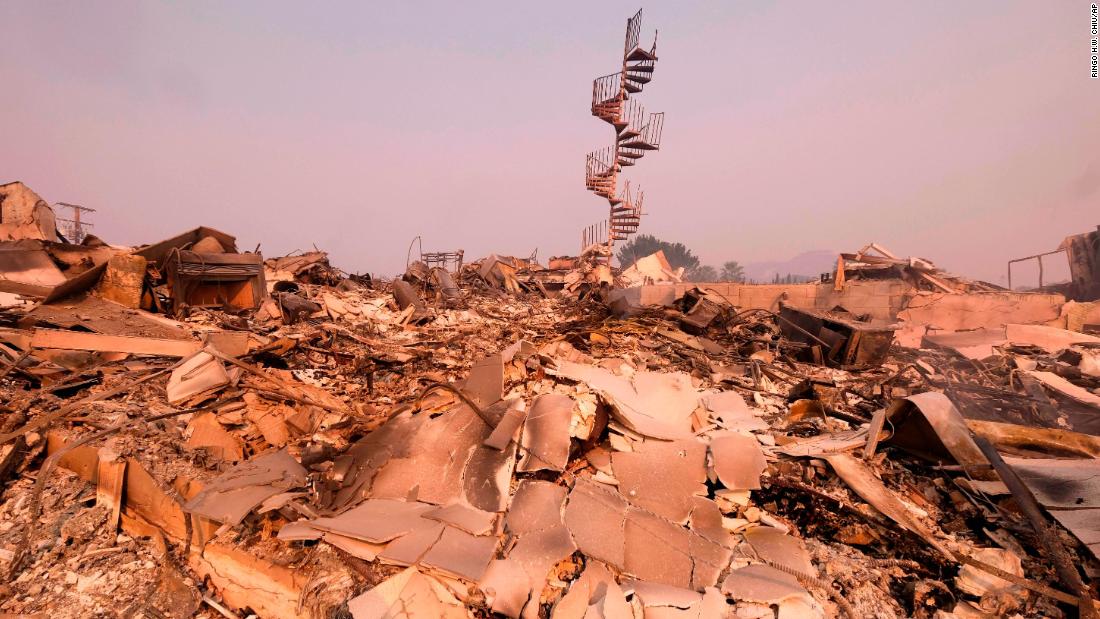
After a flood, or a tornado, you may still be able to salvage some belongings. But when a fire sweeps through your neighborhood, its destruction is complete. Almost nothing is left except ashes and charred debris.
Recovering from a wildfire takes months, if not more. But it can be done. Here are the immediate steps you need to take right now, and the longer-term things you'll need to do.
Immediate steps
Set up your mail: You will need a temporary mailing address when you fill out insurance and assistance forms. Contact the post office to get a PO Box and have your mail forwarded there. You can also request that the post office forward your mail to a friend's address. "If you have a relative in the area that wasn't affected by the disaster, have your mail forwarded there so that you can still retrieve mail in the area," Brandi Richard, a FEMA official told CNN.
Contact your landlord or mortgage lender: Give them the best way to contact you.
Alert your credit card company: Prepare them for unusual upcoming expenses or lost cards.
Find immediate shelter: Text "SHELTER" and your zip code to 43362. If you prefer to speak to someone, Brandi Richard with FEMA suggests you dial 2-1-1 and an operator can help you find shelter in your area.
Call your homeowner/rental insurance company: You will need to file a claim. Depending on your policy, you may get immediate funds for essentials like clothes, toothbrushes and food. You might also be entitled to money for temporary lodging.
Sign up for help: Register with the shelters, the American Red Cross and any similar agencies operating near your home. Your registration will help you receive aid as it becomes available.
Save your receipts: Records of purchases and expenses could help with reimbursements and insurance claims.
Let friends/family know your status: Use safety check-in portals provided by the American Red Cross or Facebook's Disaster Response pages.
Next steps
Start searching for long-term rentals: Fire survivors point out that you may spend up to two years renting while you rebuild, but you should avoid signing long leases at this point since circumstances can change fast. Ask your insurance company about "loss of use" coverage to pay the rent.
List your losses : Make an itemized list of each belonging you've lost and its replacement cost. This is a heart-wrenching but important task for insurance purposes. Some fire survivors suggest organizing the list by room. They recommend keeping the list with you at all times --perhaps on your phone -- so you can add to it as you remember things.
Alert your utility companies: You may need to cancel or freeze your services (electric, landline, water etc.).
Call other insurance carriers as needed: This is important if you have to deal with car insurance or any special coverage you might have.
Replace essential documents: FEMA provides this list of high-priority papers.
• Driver's license, auto registration.
• Bankbooks (checking, savings, etc.).
• Insurance policies.
• Military discharge papers.
• Passports.
• Birth, death and marriage certificates.
• Divorce papers.
• Social Security or Medicare cards.
• Credit cards.
• Titles to deeds.
• Stocks and bonds.
• Wills.
• Medical records.
• Warranties.
• Income tax records.
• Citizenship papers.
• Prepaid burial contract.
• Animal registration papers.
• Mortgage papers.
Lean on others: There are countless other people in your situation right now. In networking with them, you can help each other navigate the insurance maze and rebuilding process. Many fire survivors strongly advise that you let people do things for you; run errands, shop for food, anything to help. Don't go it alone. It will help you rebuild personally and it will help rebuild the neighborhood. The fires in California turned lives upside down and burnt down physical structures. But in the end, they may have only strengthened communities.
No comments:
Post a Comment